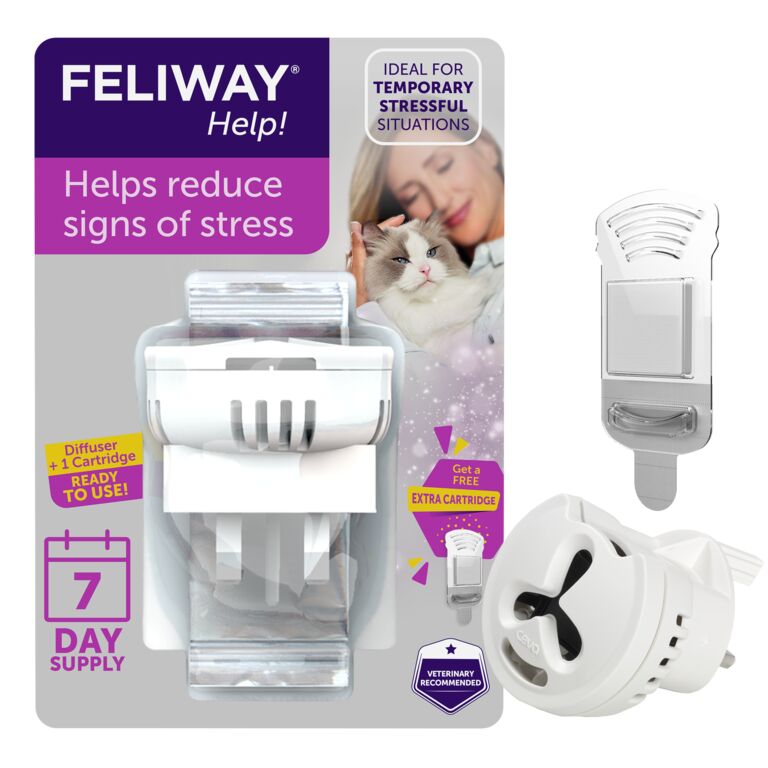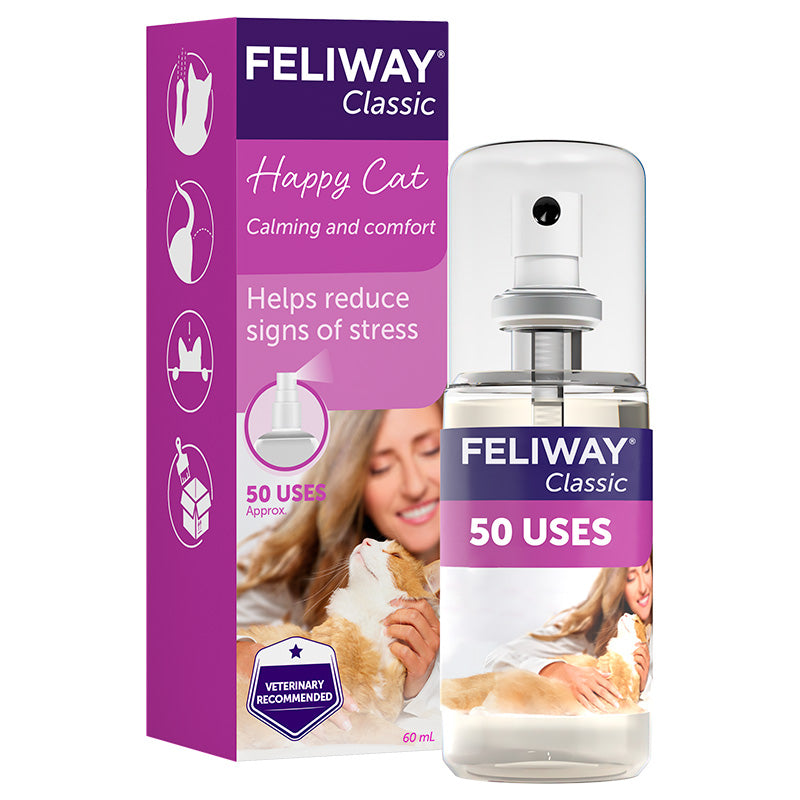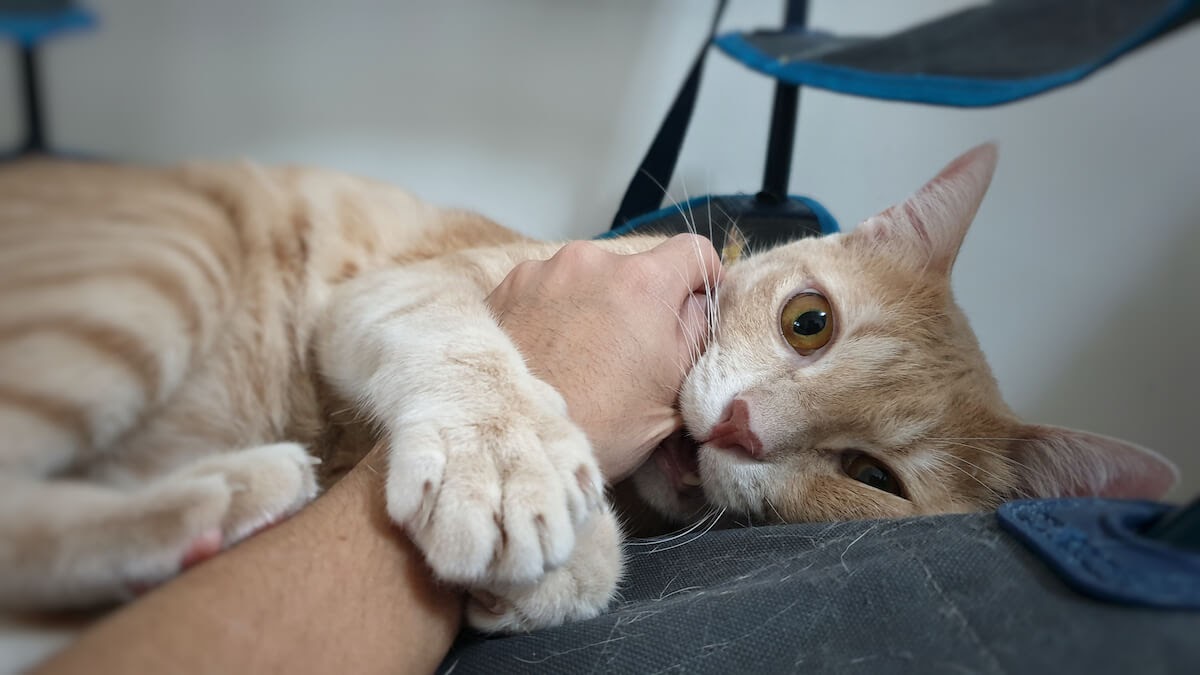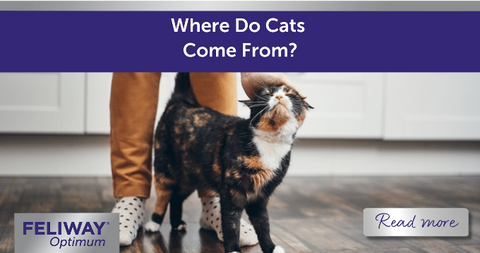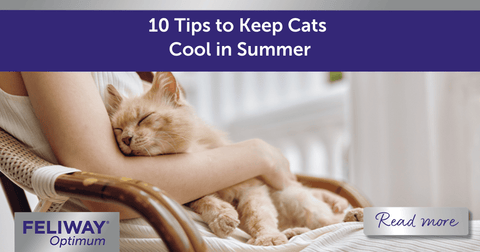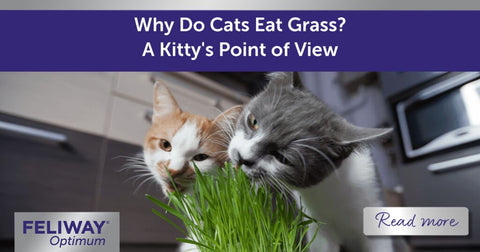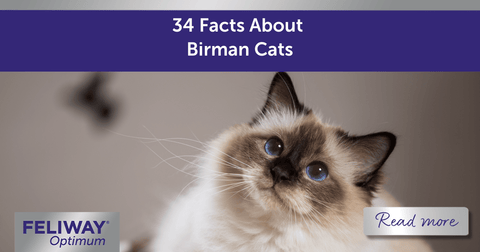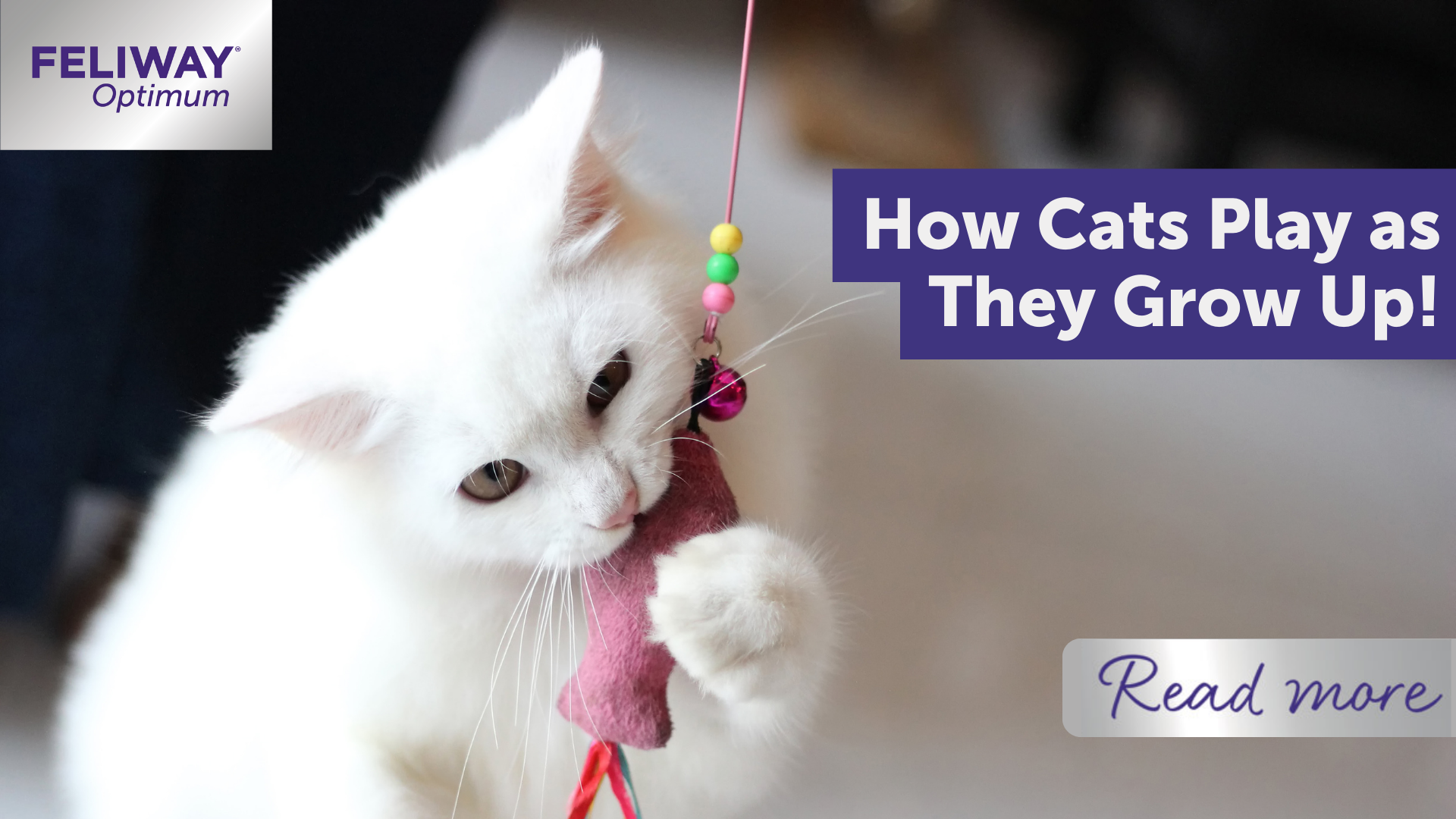
How Cats Play as they Grow Up!
Although cats are independent creatures, they are also naturally curious, intelligent and active! Playtime is a vital part of their general health and development, although they may not want to play as much when they are older, playtime is just as important for adult cats as it is for kittens.
So how does kitty play change as your cat grows up?
Social Play and Object Play
Cats play in two different ways: Social Play and Object Play.
Social Play
Whilst they are still in their litter, kittens engage in social play with their siblings. This can include chasing or pouncing - and they may look as if they are fighting, with one kitten standing in a 'dominating' stance over another. It may even look as if one kitten has bullied the other into submission, but as their claws will normally still be retracted and their bite gentle, they are only being playful and there is no need for concern - you may even notice that the kittens take turns with who's in charge!
If you spot your cats sitting close to each other and taking swipes at each other with their paws, don't worry! Again, as long as their claws are retracted and there are no signs of aggression, this is normal social play. But, with older cats particularly, swiping (especially with claws extended) might be a sign of conflict rather than play. Being able to recognise the difference between social play and fighting is important if you are to continue to have a battle-free household!
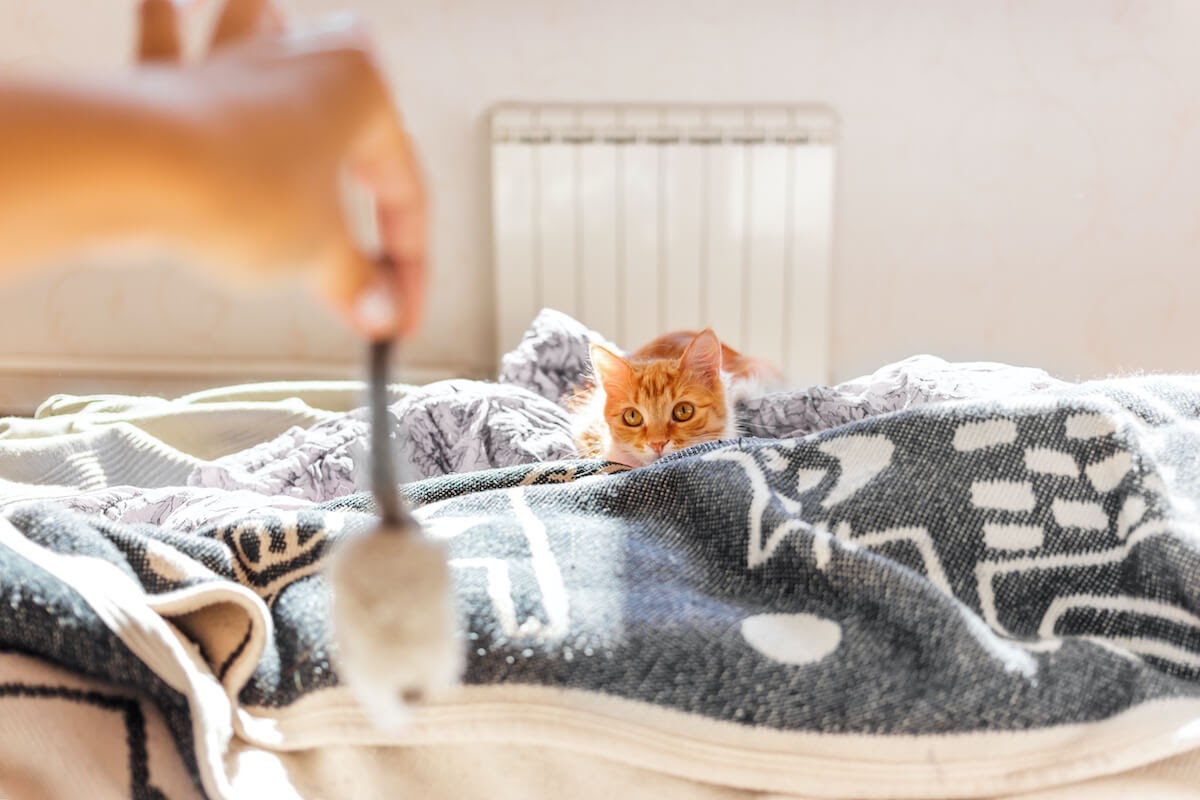
If your cats are playing:
- They will swap roles during play, with one cat chasing and pouncing on the other and then vice versa
- Claws will be retracted all the time
- Bites will be inhibited
- There will be very little vocalisation
- They will go back to spending quiet time close together fairly quickly
If your cats are fighting:
- They will be very vocal, and growl and hiss
- Claws will be extended
- They will be staring at each other
- Their ears will be turned back
- Their tail will be held to one side or swishing
- They may crouch and look ready to pounce
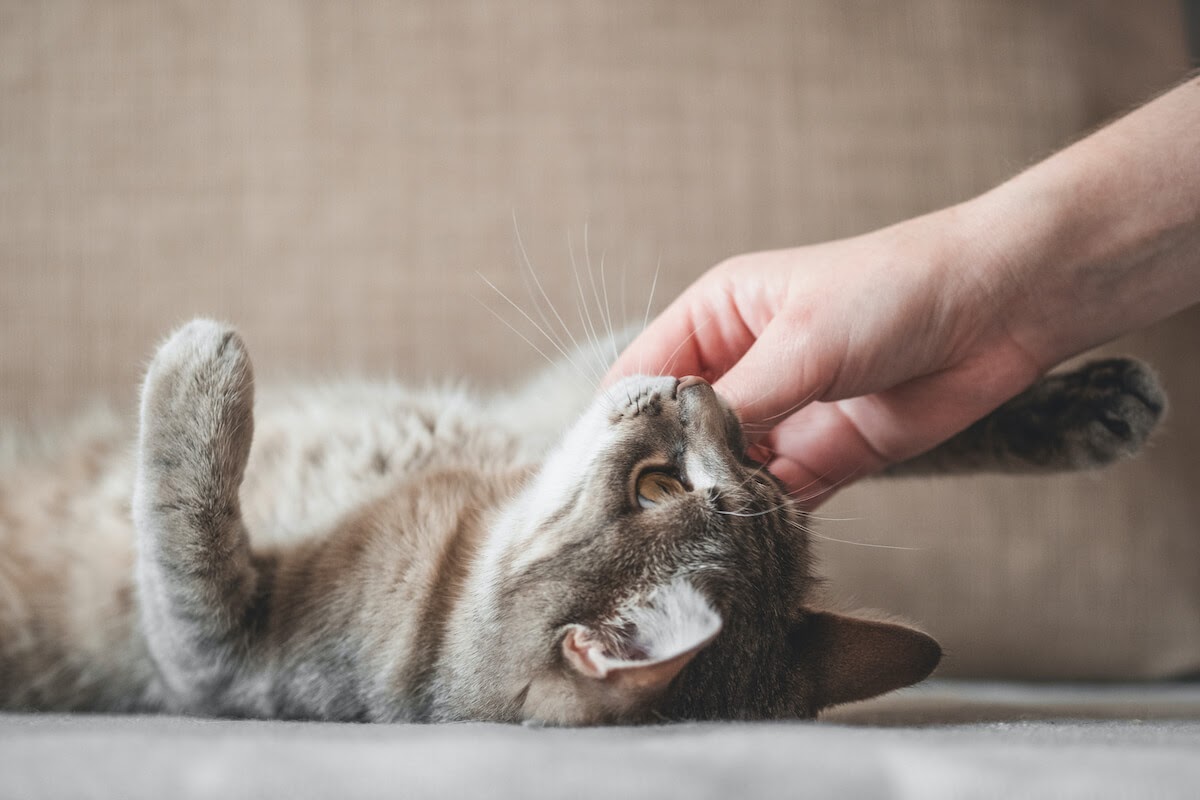 Object Play
Object Play
This is when you may see a cat / kitten's natural instincts of hunting come into play!
Chasing a toy mouse on the end of a string, or chasing and pouncing onto a moving light will keep your cat busy for a long time and provide lots of mental and physical stimulation. As they catch a toy mouse they will enjoy the capture moment and hold it with their teeth and claws - as they would if they were hunting!
Object play is particularly good for house cats as it is a way for them to use their natural instincts, without them using their hunting skills outside - but it won't necessarily develop an outdoor cat's hunting skills more. Spending time playing with toys together will keep both house and outdoor cats mentally and physically stimulated whilst building your bond with them!
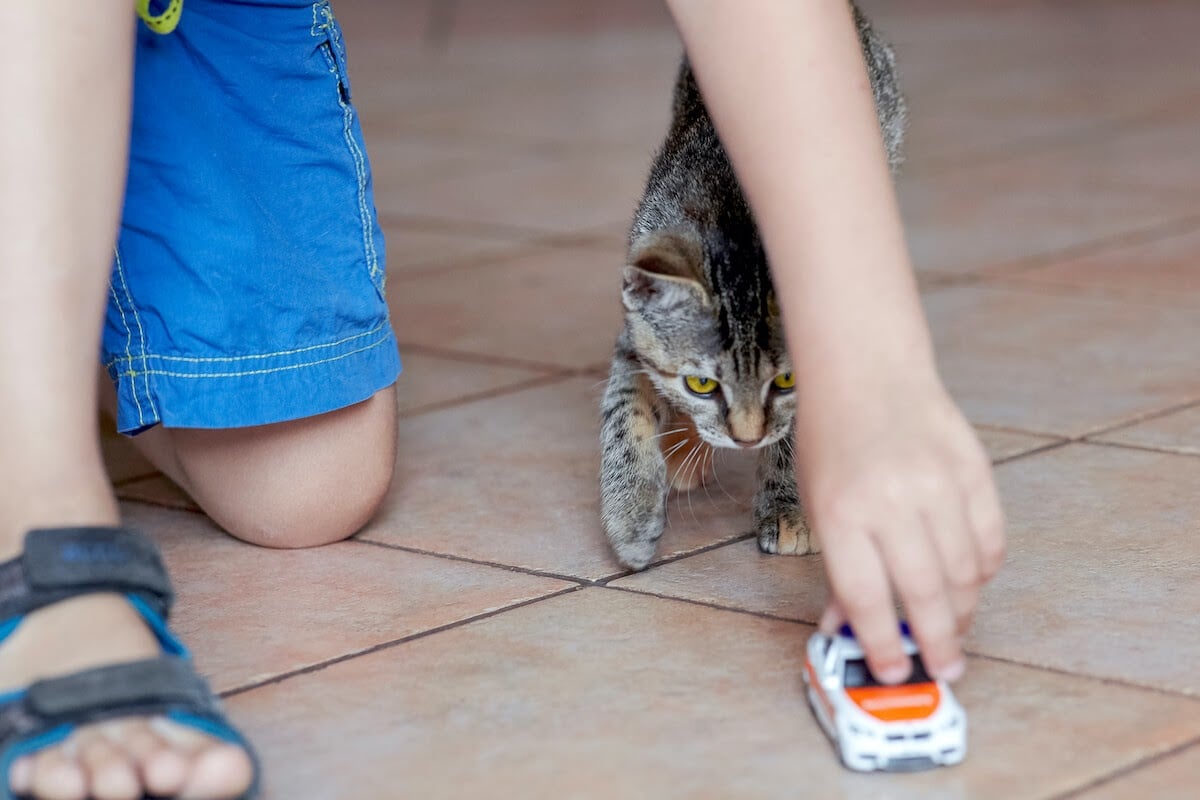 How Cats Play as they Grow Up
How Cats Play as they Grow Up
From around 3 weeks old, a kitten will start social play - this is an important part of their development.
As a kitten grows, you will find that object play becomes more frequent as their hunting instincts develop more, they get more eye-paw coordination and they will start to become more inquisitive and explore objects that they can climb, for example.
As your cat gets older, the frequency of play activity will naturally decrease, but it is important to continue to play with your cat as much as you can. Fitting regular playtimes into your cat's daily routine will help to release any tension or stress your cat may be feeling as well as strengthening your bond together, take a look at this blog to find out if your Cat is Purrrfectly Happy!
Hunting Games you can Play with your Cat
Playing with your kitten or cat can be great fun, very rewarding and you don't need to spend a lot of money on kitty toys either - a piece of wool or string, a laser light, or a small ball with a bell in it, can keep you both busy for a long time!
- Tie a feather or a piece of fluffy material to the end of a piece of string and your cat will chase and hunt as you wave it around. Make sure you allow them to catch it a few times too - to give them the satisfaction of catching their 'prey'.
- Scrunch up a piece of paper and throw it for your cat to chase. They will enjoy the different noise it makes and will probably pat it around the floor while exploring it.
- Roll a small ball along the floor - one with a small bell in the middle will make it interesting for them - but avoid toys that are very noisy as cats don't like loud noises.
- Shine a light on the floor and wall for your cat to pounce on. But make sure to shine it on something they can 'catch', as your kitty needs this sense of accomplishment to end the game.
Things to avoid when playing with your cat or kitten
- Don't use toys with hard edges or pieces that can become detached during play, to avoid your cat swallowing any dangerous objects. It's worth checking their toys for damage, and be extra cautious with materials that are known to be hazardous for cats - including string, elastic, paper clips, feather toys, plastic bags etc.
- Do not encourage them to chase and bite your fingers or toes - even kittens' teeth can be sharp and hurt, particularly children's fingers.
- Never punish your cat if they accidentally nip or scratch you. It will give mixed messages and they might be fearful of playtime in the future. Remove them gently and redirect them to another toy (if you want to scream because it hurts, go into another room!).
- Don't jump around or move quickly when playing, as this might frighten them and they will run away.
- Avoid stopping the game suddenly. If your cat is motivated to play, stopping quickly will confuse it and they may expend their energy somewhere else, like your favourite furniture! Gradually bring the game to an end by reducing movements slowly and calmly and perhaps put a few treats on the floor to distract them away from the game.
Things to be Aware of When Playing with your Cat
Look out for your cat's body language as this will change as they grow! If they are totally engaged with watching a toy, their ears will be pointing forward, as will their whiskers. Kittens will have much more energy but may tire quickly and want to have a cat nap between games.
Sometimes an older cat may not seem quite so engaged but might be encouraged to play for shorter periods of time. They may not want to chase a laser light or a ball around the floor, but they may be happy to lay on their back and pat a dangling soft toy or feather. Food/treat based toys can also be a good incentive to keep your cat active.
Playing with your cat or kitten can be very rewarding for you both, but if you see a change in their temperament - consider seeking professional advice in case there are any underlying medical issues.
If you have concerns that your cat may be stressed, if they are hiding or fighting with other cats, consider using FELIWAY Optimum. FELIWAY Optimum is clinically proven to enhance serenity and help cats cope with more signs of stress, in more situations - leading to a more relaxed playtime, and serene, happy kitties!
{{cta('e1cbfece-2fbd-46ae-b748-fffc7583aea2')}}













